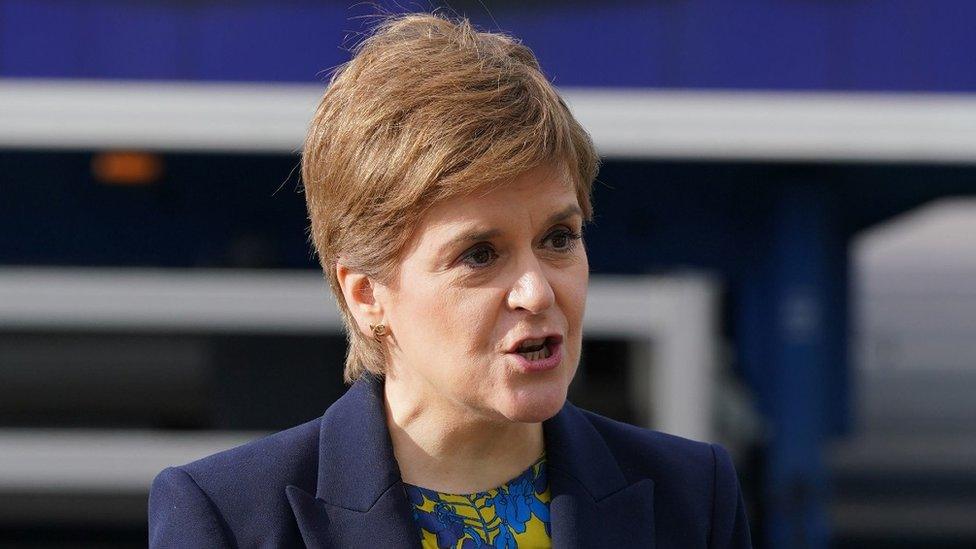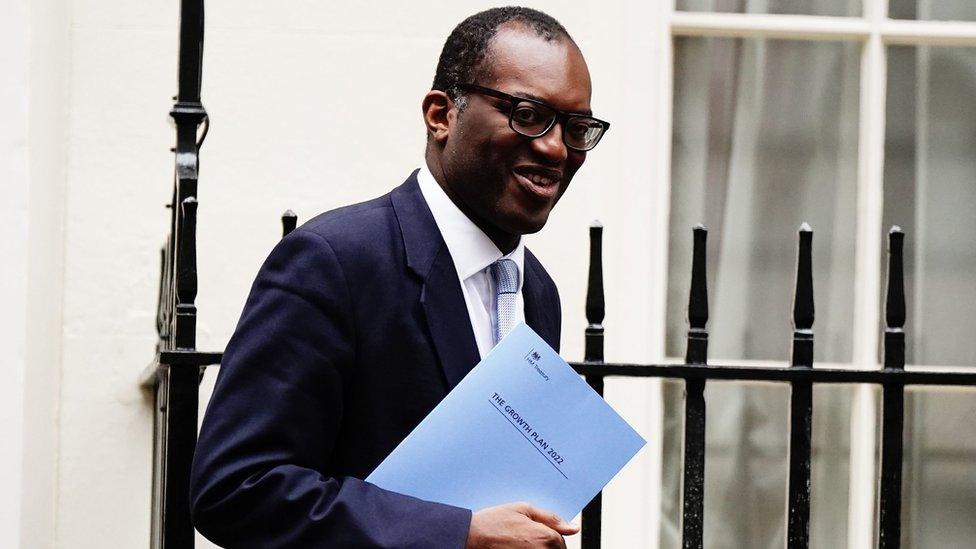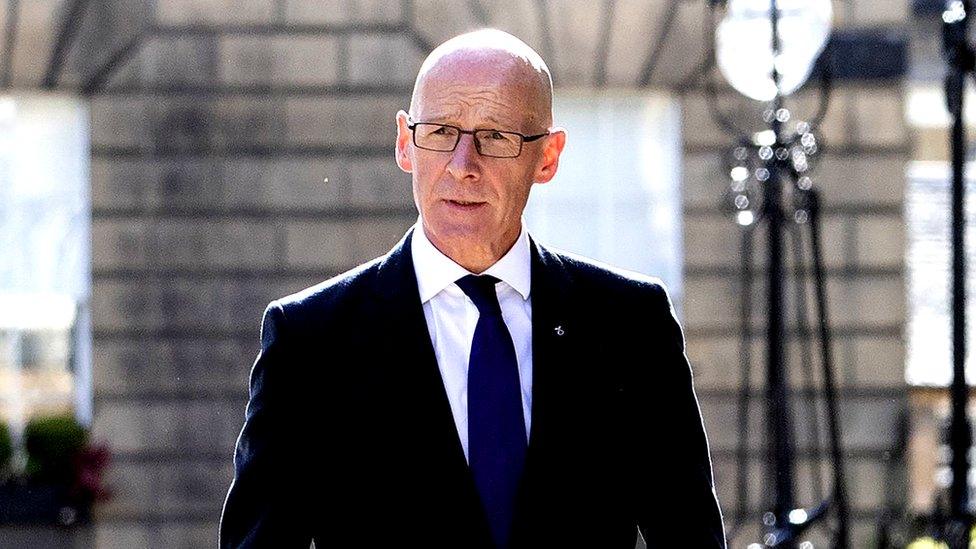FM says matching tax cuts in Scotland would be a serious error
- Published

Nicola Sturgeon was speaking on a visit to a dairy in Bridge of Allan
Nicola Sturgeon has said it would be a "serious error" for Scotland to match all the tax cuts announced by UK Chancellor Kwasi Kwarteng.
Last week he set out plans to reduce the basic rate from 20p to 19p and scrap the 45p rate for high earners.
His proposals do not apply to Scotland, where income tax rates and bands are decided by the Scottish government.
The first minister described last Friday's fiscal event as "morally abhorrent" and "fiscally reckless".
The chancellor said his aim was to kickstart a "new era" for the UK economy that would be focused on growth.
However, the pound sank to a fresh 37-year low as he gave his statement on Friday.
On Sunday, Mr Kwarteng told the BBC he wanted to keep cutting taxes and said there was "more to come".
Then on Monday, the pound fell to a record low against the dollar, the lowest since decimalisation in 1971.
Ms Sturgeon said it was the wrong time to make "a relatively small number" of rich people richer.

Kwasi Kwarteng said the UK government planned more tax cuts
"It would be a serious error for the Scottish government to replicate in every sense that strategic economic mistake that the chancellor made, but we will take decisions that are right for Scotland," she said.
"We live in a situation right now where growing numbers can't afford to heat their homes, can't afford to feed their children, are going without basic essentials, and I don't think many people would think this is the right time to give massive tax cuts to a tiny number of already rich people."
The first minister said "trickle down economics" had been "roundly discredited" and the UK government's current approach would not work.
Given the reaction from markets, Ms Sturgeon predicted a potential increase in interest rates and the cost of borrowing, and a continuing issue with inflation.
"The UK government seems to have no idea what it is doing - the damage it is doing to the economy overall, and to the living standards of the majority, is deep and very, very serious," she said.


The income tax cuts announced by the chancellor will take effect from April next year.
That's the earliest the Scottish government can make changes to rates and bands in Scotland which are under its control.
Nicola Sturgeon has made it pretty clear she won't match exactly the UK government's plan, especially not the abolition of the top rate on earnings above £150,000.
That doesn't mean she is ruling out making any changes. It would, for instance, be possible to lower the top rate or raise the threshold at which it is paid without scrapping it.
Her deputy John Swinney has certainly acknowledged that a 6p in the pound difference between the tax rates paid by the highest earners in Scotland and elsewhere in the UK (if he did nothing) would raise the possibility that some wealthy people might relocate.
Expect decisions in the the Scottish budget process over the winter and earlier clues in the Scottish government's emergency budget review in October.

'Reflecting carefully'

Finance Secretary John Swinney said the country was facing "really significant and dangerous moments"
Earlier, Scottish Finance Secretary John Swinney said he was "reflecting carefully" on the announcements.
He said he would go ahead with his emergency budget review and report to the Scottish parliament in the next two weeks, and would set out decisions on tax when he outlines Scotland's own budget plans later in the year.
He told BBC Radio's Good Morning Scotland programme: "We take an approach to taxation which is driven by the principles of fairness and ensuring we have a progressive character to our tax system."
Scottish Conservative finance spokeswoman Liz Smith urged Mr Swinney to adopt the party's tax cuts.
She told BBC Scotland: "The challenge now is for the Scottish government to match some of these changes, because what we can't have is a widening gap between the tax agenda in Scotland in comparison to the UK."
She accepted there was a "very difficult message here when people see bankers' bonuses are increasing" at a time when many people were finding it extremely difficult to pay their bills.
But she said: "The biggest picture within this is to ensure the growth within the economy."
She also added that Mr Swinney should use the estimated £600m the Scottish government will receive as a result of the tax cuts elsewhere in the UK to "make Scotland a more attractive place to work".
Mr Swinney replied: "You've had a Conservative spokeswoman on the radio this morning who wants me to equal UK decisions and use all of that money to reduce taxation.
"And then you'll have the Conservative spokesperson on health on the radio demanding that we spend that same £600m on health.
"Now what that tells us is two things. One, there are difficult choices to be made, and two, the Conservatives are opportunists who are quite simply trying to spend the same amount of money twice by demanding tax cuts and increasing public expenditure at the same time."